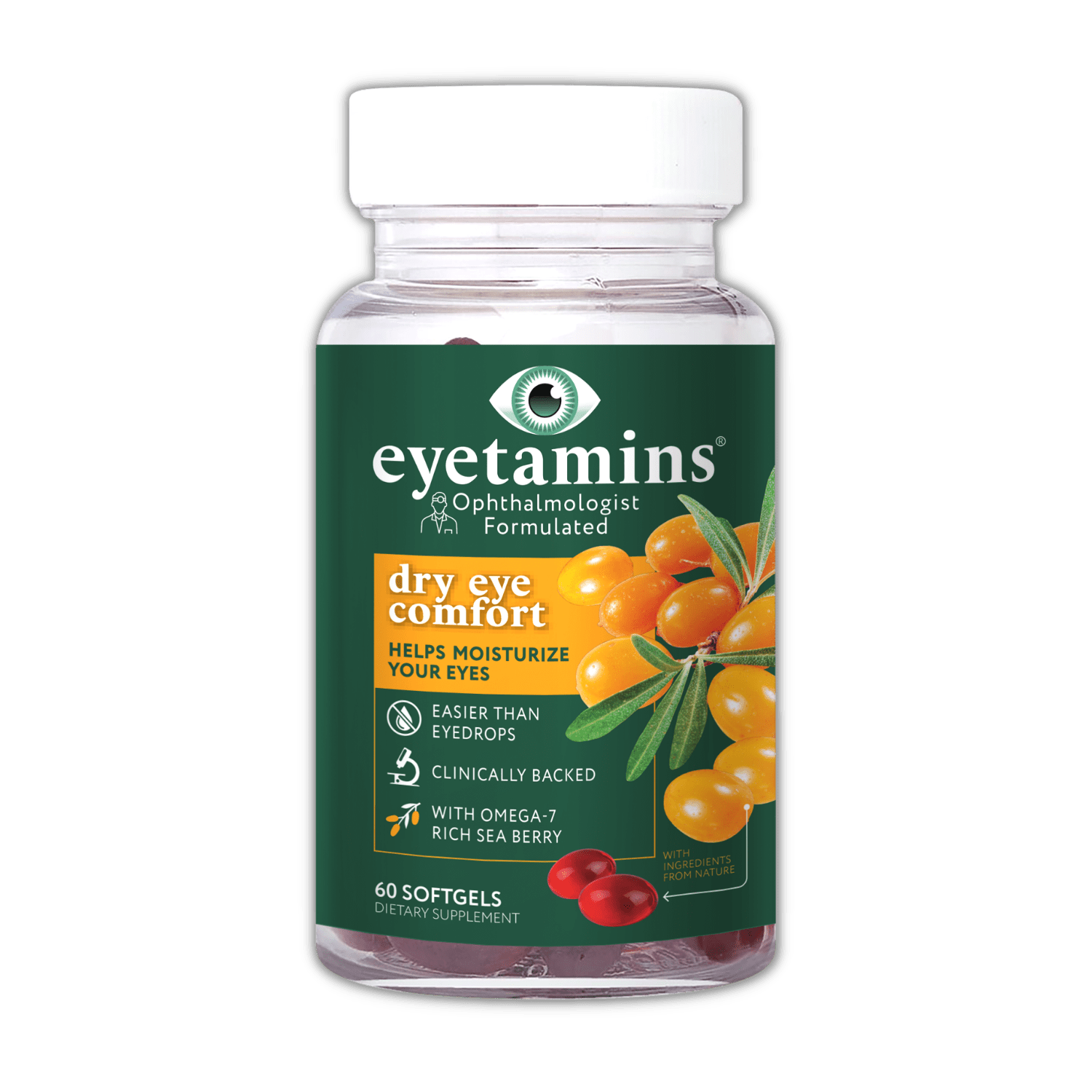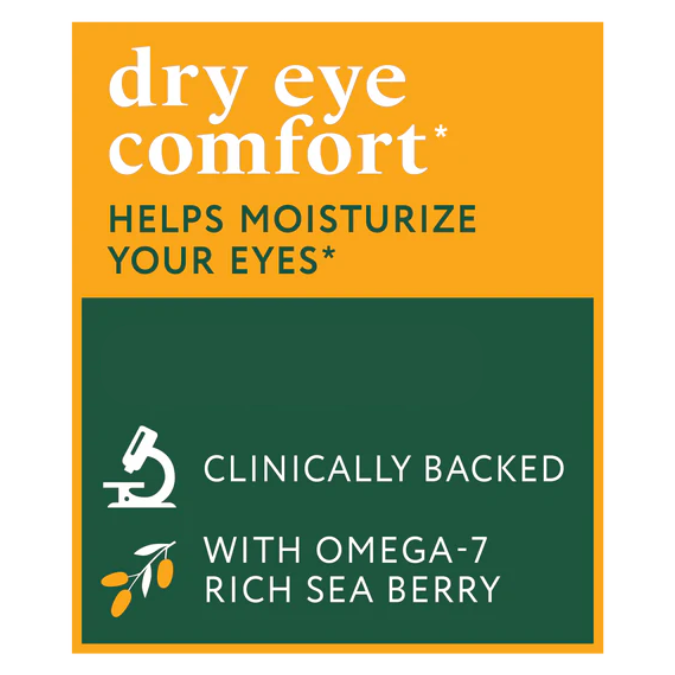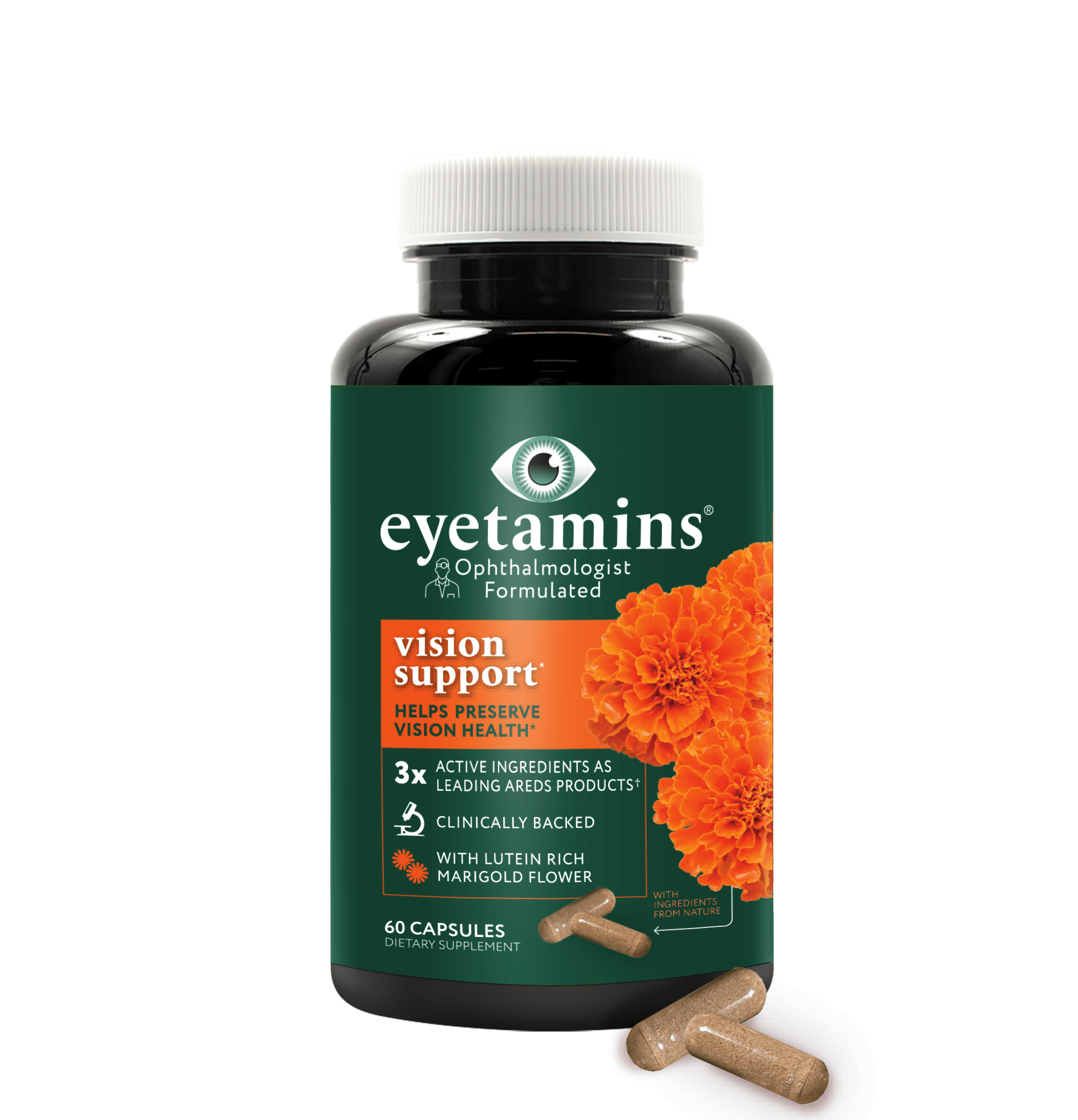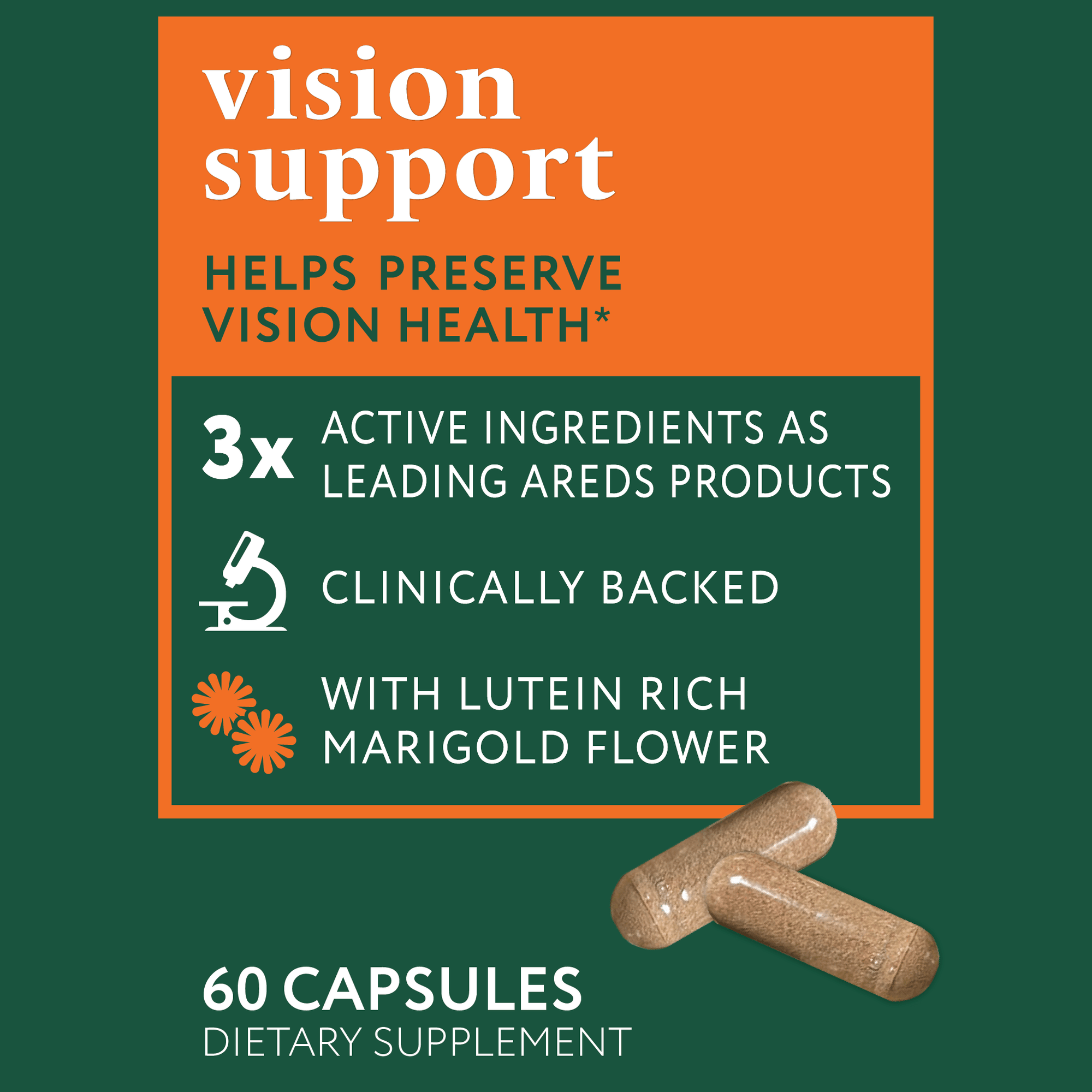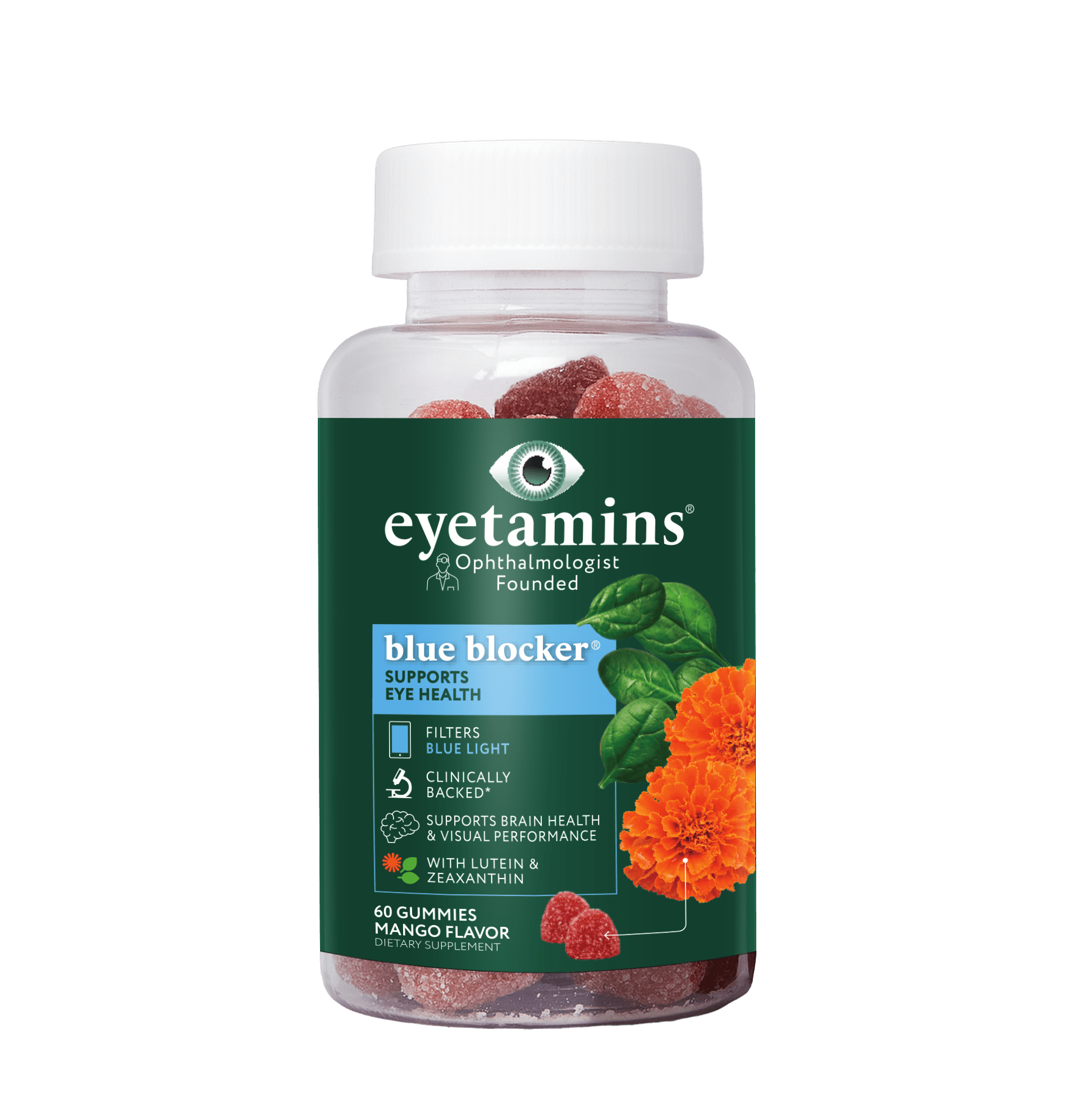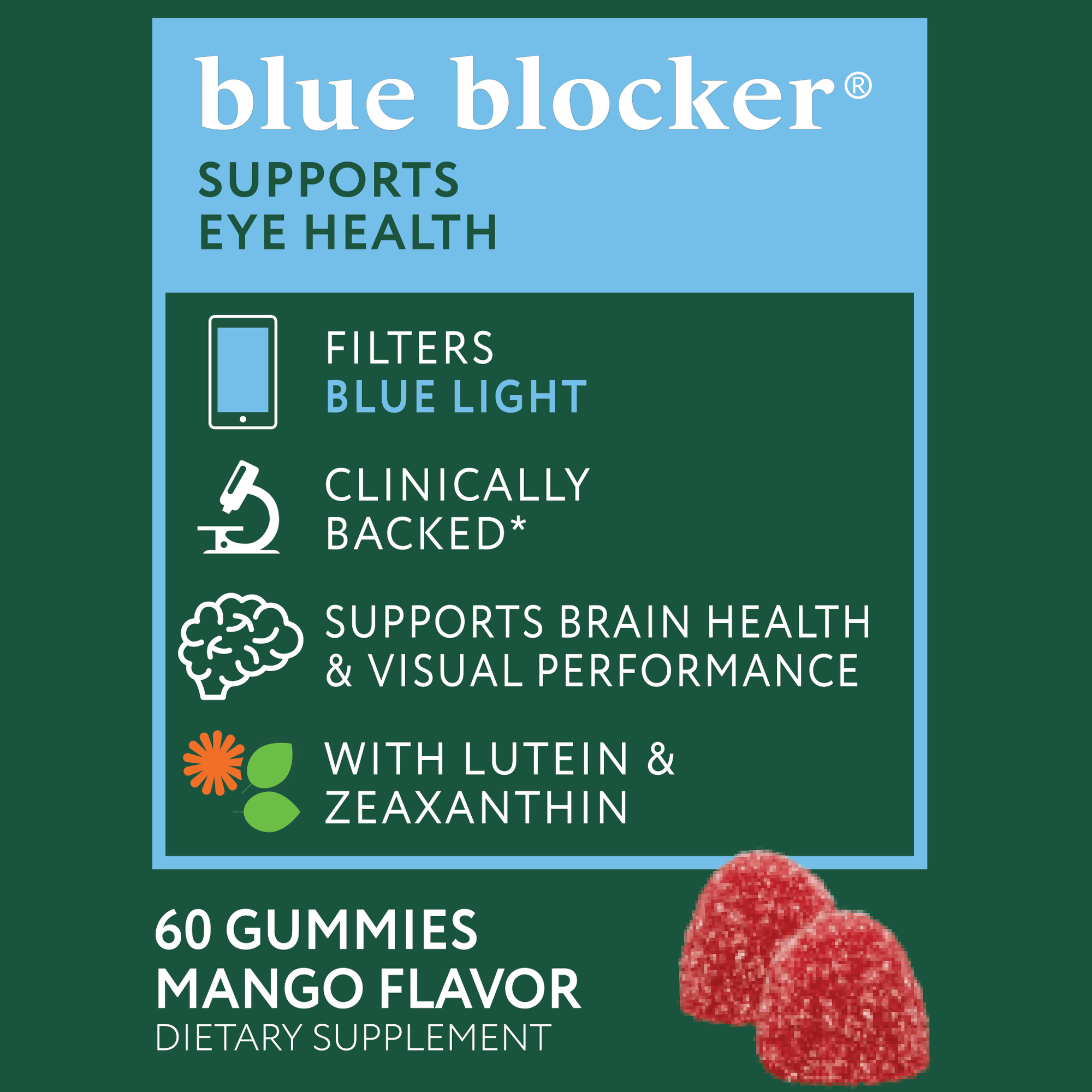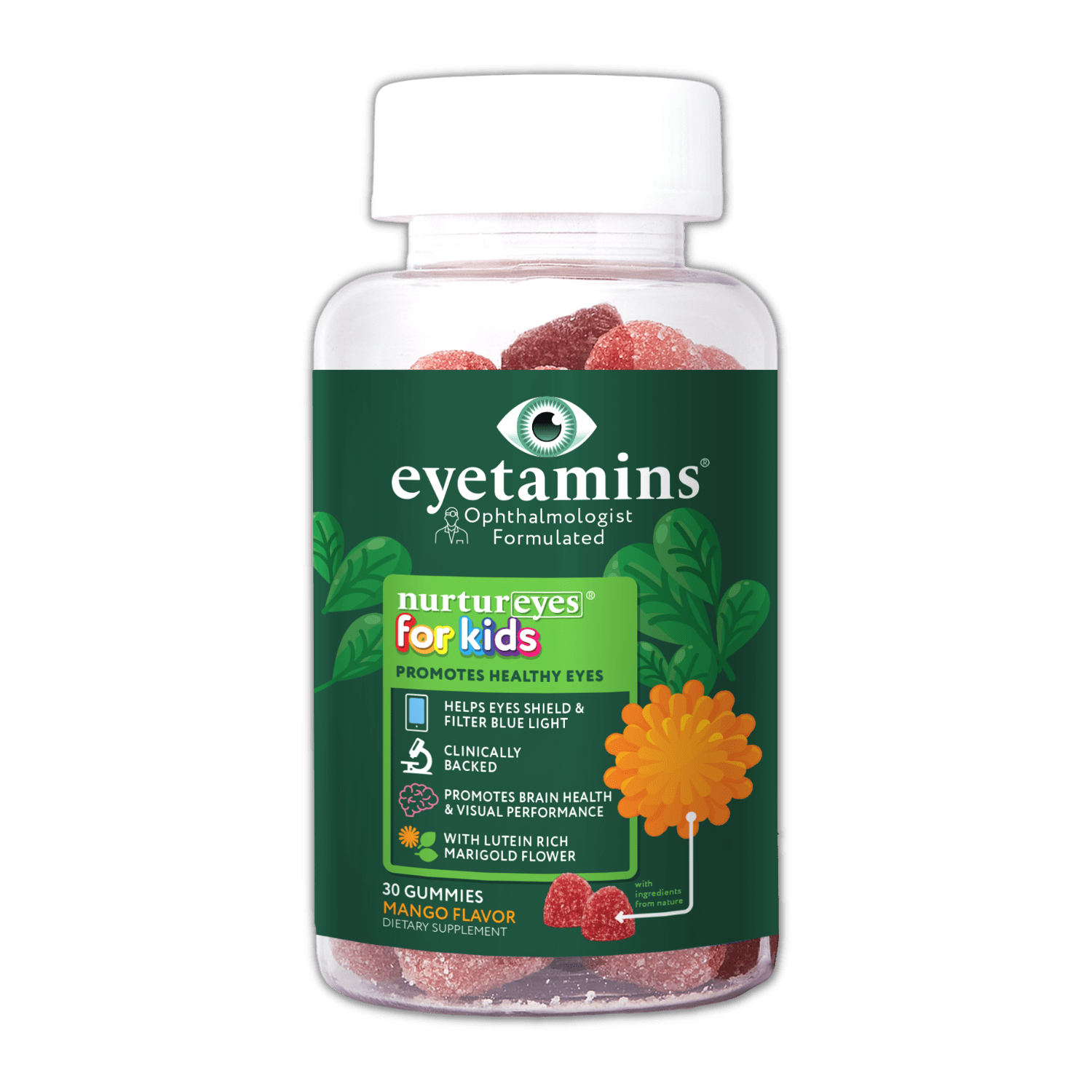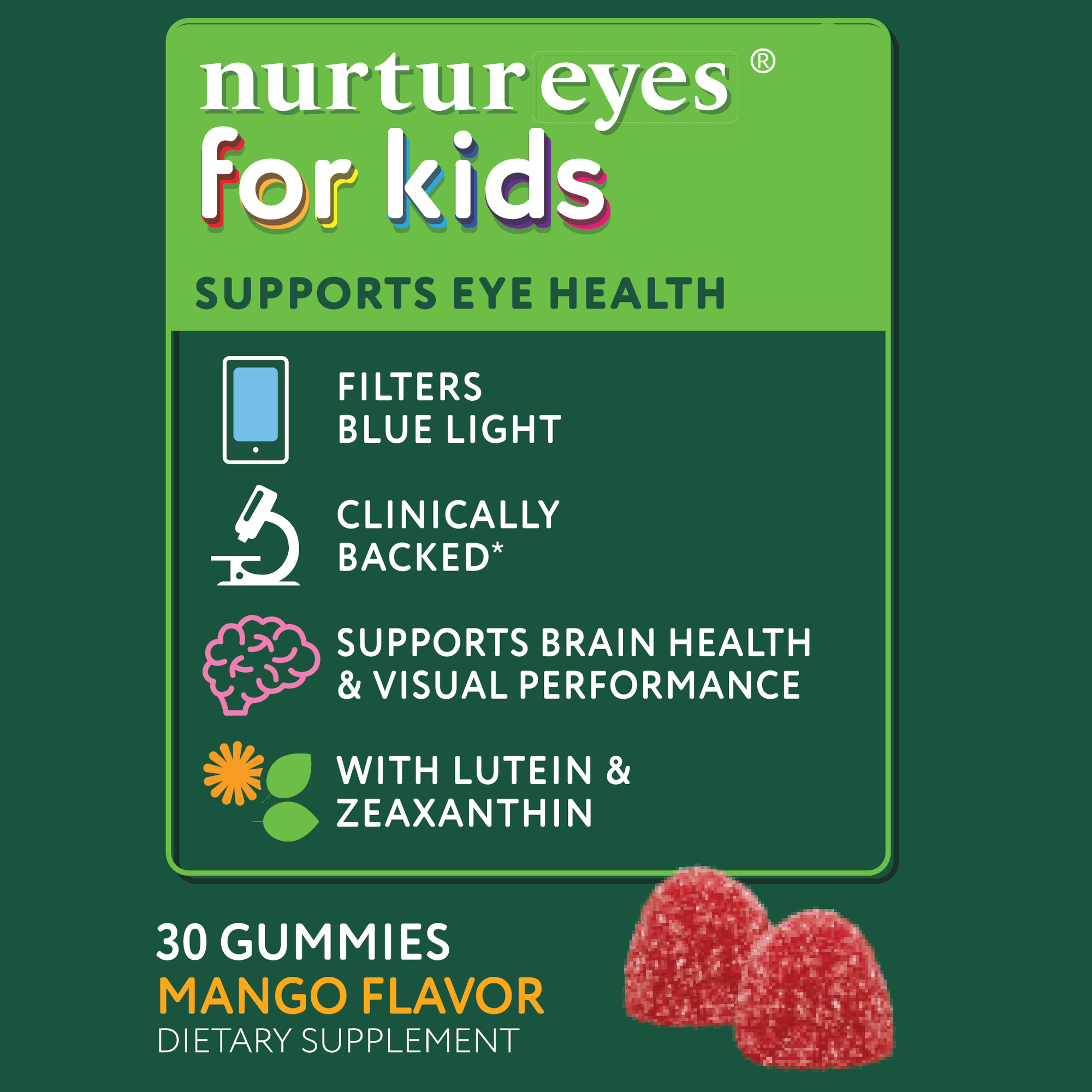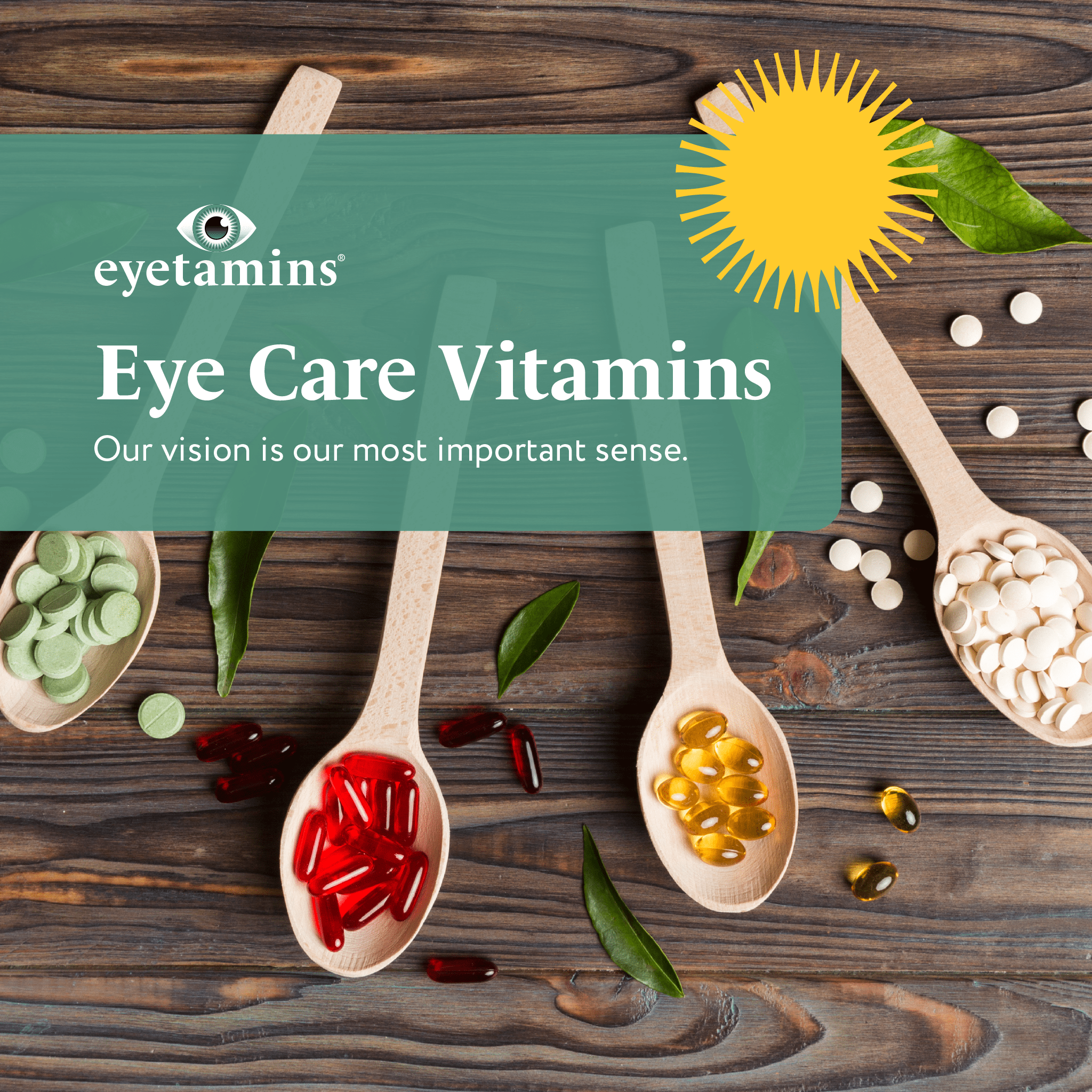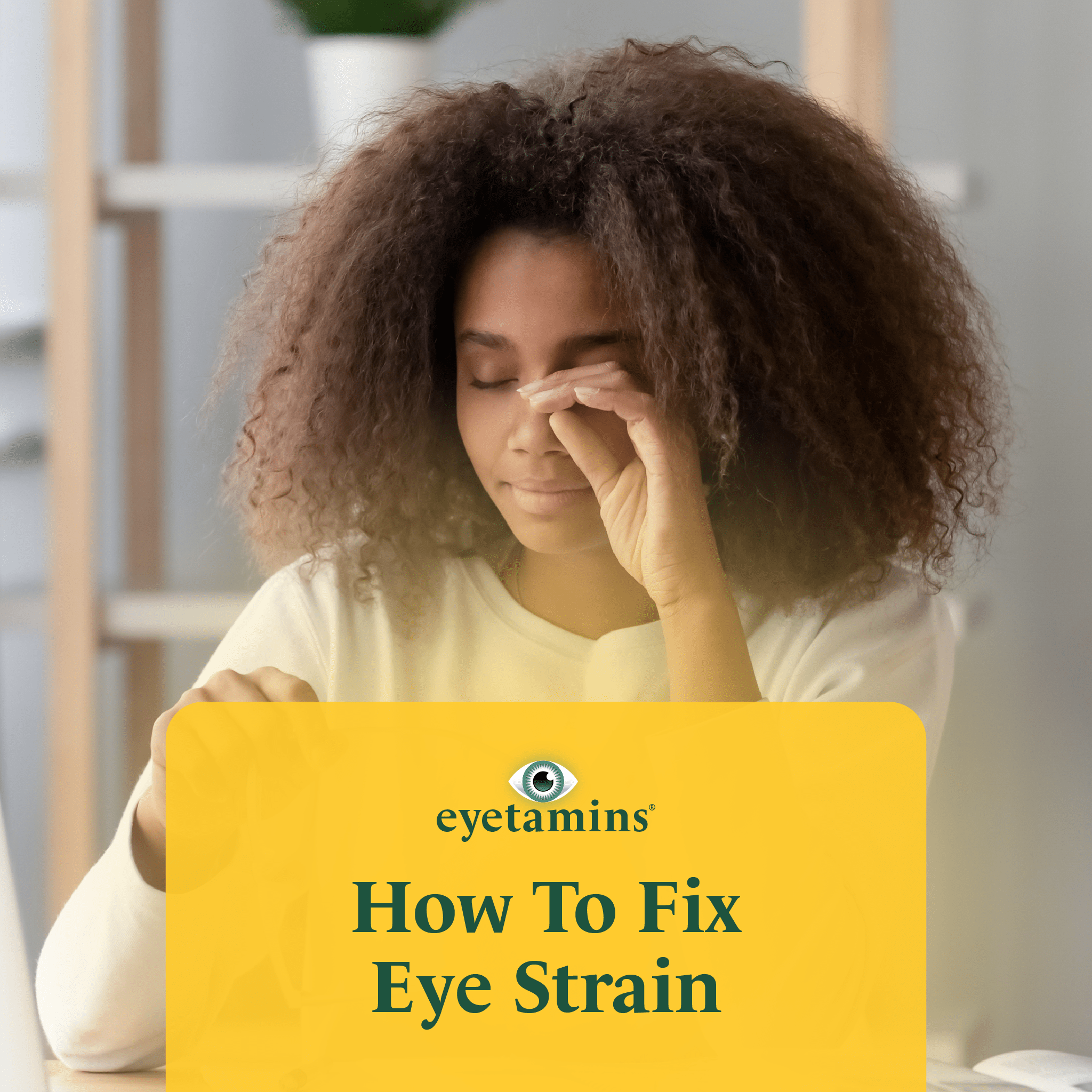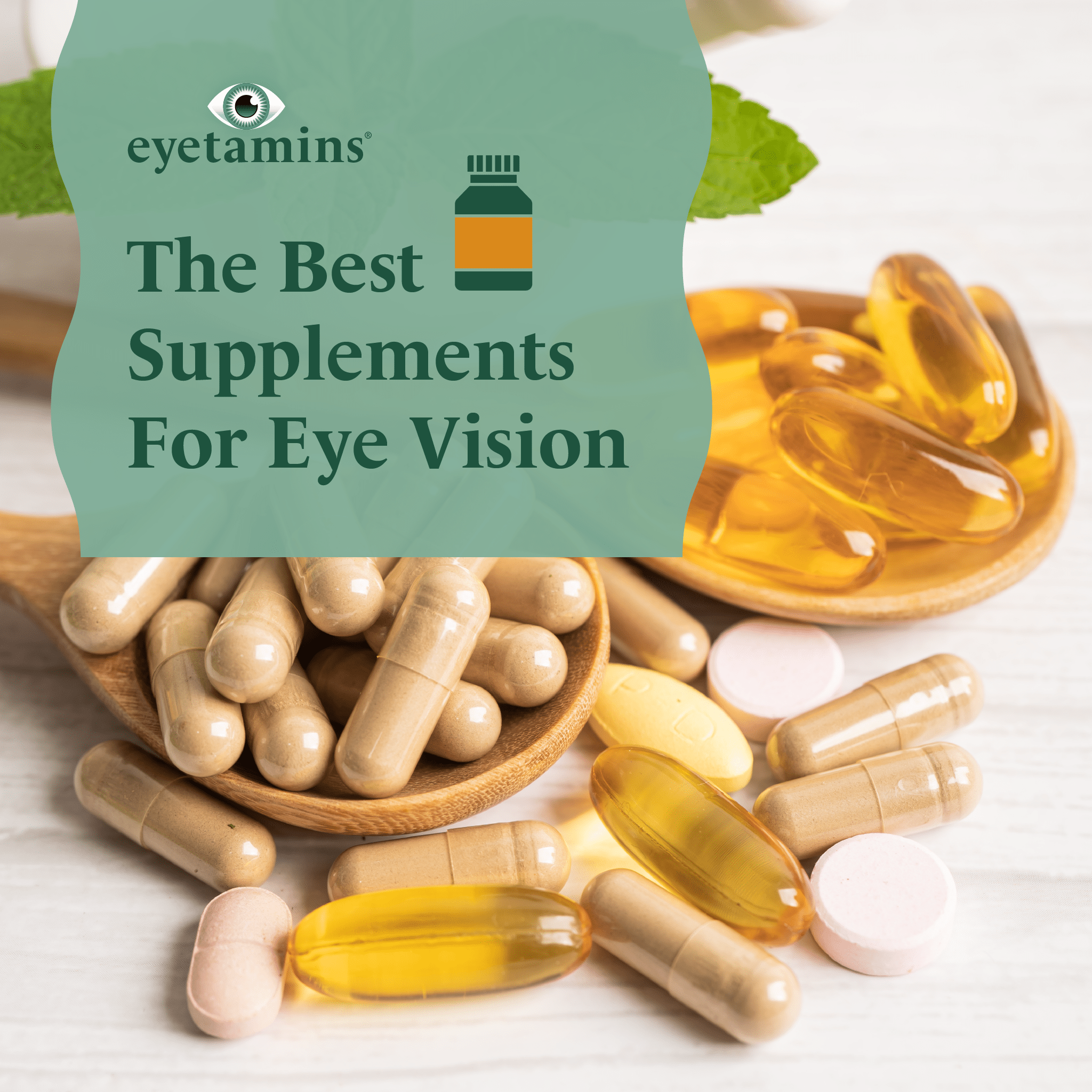· By Joey Brennan
Are Your Eyes Getting Enough Lutein?
If you are one of the many people who make a living behind a computer screen, your eye health may be suffering. Luckily, lutein-rich supplements can help support your eyes with all of the time they spend on screens and in sunlight. But, it may be difficult to assess if you are getting enough of this essential carotenoid.
In this article, we will discuss what it is, why it is essential, and how much lutein per day you need for optimum eye health.

What is Lutein?
As we’ve discussed in The Lutein Guide, lutein is a carotenoid found mostly in plants and some animals. Carotenoids are the pigments that give the characteristic color to things like pumpkins, carrots, tomatoes, and autumn leaves. Most commonly, you can find the carotenoid in dark green leafy veggies, corn, eggs, and avocados.
Since it is not naturally produced in our bodies, it must be provided through diet or supplementation. After they are ingested, lutein and zeaxanthin cross the blood-retina barrier to form the macular pigment of the retina.
The central part of the macula, the fovea, has the highest demand for oxygen and thus the highest risk of oxidative damage. The fovea mediates our central vision, as well as maintains our ability to see colors, motion detection, contrasts, and acuity.
These carotenoids are naturally suited to protect this area of our eyes due to their yellow-orange coloration and location in the retina. But what exactly do they do for our eyesight?
Why Our Eyes Need Lutein
When you get the proper amount of this carotenoid, you may experience the following eye health benefits:
- Prevention/treatment of intermediate stage age-related macular degeneration (AMD): Lutein has been shown to have a positive effect on decreasing the severity of AMD. During the AREDS 2 study, lutein and zeaxanthin, along with other vitamins and minerals, were found to have a positive results on AMD, slowing down the progression of the disease.
- Filtration of harmful blue light: Blue light is emitted from our smartphones, laptops, TV screens, and even sunlight. Long hours at the computer can cause digital eye strain and sleep loss. Luckily, lutein and zeaxanthin are natural blue light filters!
- Increases visual performance: Lutein and zeaxanthin can improve visual performance by reducing daytime disability glare and enabling your eyes to see objects at a distance more quickly. In this study, drivers saw an improvement in their nighttime driving as well as other spatial discrimination tasks.
There is evidence this carotenoid can also beneficial for brain health, coronary artery disease, colon cancer, breast cancer, diabetes, and protecting skin from UV damage.
Unfortunately, Americans typically average only 1 to 2 mg a day. This is not enough to make any significant improvement in eye diseases, eye disorders, blue light filtration, or visual performance.
How Much Lutein per Day for Eye Health?
You may be asking, “How much lutein and zeaxanthin should I take?” A good starting point is 10 mg of lutein and 2 mg of zeaxanthin a day for optimum eye health. These are the dosage amounts used in the AREDS 2 trial that had positive results. However, there is not a recommended daily amount that is universally agreed upon.
In studies, patients have achieved benefits from between 6 and 20 mg a day. We recommend staying within this range because an upper limit has not been set yet by researchers. 20 mg daily has been deemed safe, however sustained higher dosages over time may cause yellowing skin.
Where to Get Lutein
Since our bodies don’t produce this carotenoid, we must consume the right amount to meet our needs. Now that you know approximately how much lutein and zeaxanthin per day your eyes need, let’s find out where to get them. There are two ways.
Diet
To obtain your daily dose, consider loading up on lutein-rich foods. Here are some of the most common foods you can find both lutein and zeaxanthin:
- Spinach, cooked: 1 cup has 29.8 mg
- Kale, cooked: 1 cup has 25.6 mg
- Summer squash, cooked: 1 cup has 4 mg
- Peas, cooked: 1 cup has 3.8 mg
- Pumpkin, cooked: 1 cup has 2.5 mg
- Brussel sprouts, cooked: 1 cup has 2.4 mg
- Broccoli, cooked: 1 cup has 2 mg
- Sweet yellow corn, boiled: 1 cup has 1.5 mg
- Avocado, raw: 1 medium has 0.4 mg
- Egg yolk, raw: 1 large has 0.2 mg
It is most beneficial to eat these foods along with a fat such as olive oil or butter because they are best absorbed into the body this way. Eating egg yolk is a more accessible way to consume lutein naturally because the fat in it can help our bodies absorb it better.
Supplements
Let’s be realistic here: Who really has the time to keep count of daily consumption? If you want to skip the daily tally, you can ensure your consistent daily intake by taking a daily supplement. This makes consumption of this essential carotenoid much easier to manage and sustain over time.
If you are getting confused by all these numbers and rules, we will make it easy for you. Shop our lutein supplements! Just 1 blue blocker® gummy or 1 Vision Support softgel contains 10 mg of lutein, and 2 mg of zeaxanthin, just the daily dose your eyes are begging for.
Our supplements help support your retina by filtering blue light, helping digital eye strain, and allowing better sleep after a long day in front of the computer.
When you take these supplements over time, you may see a difference in your visual reaction time, depth perception, motion detection, and sensitivity to contrast.
People Also Ask
1. Is 20 mg of lutein a day too much?
No. There is strong evidence that the carotenoid is safe up to 40 mg a day.
2. What happens if you take too much lutein?
The AREDS 2 trial reported some mild skin yellowing as an adverse effect of regular supplementation for 5 years in those who had intermediate AMD.
3. Can lutein improve vision?
Yes, it can boost the sharpness of your vision by improving the contrast sensitivity of your vision, and reducing glare impairment.
4. What are the side effects of taking lutein?
There are no significant side effects. The only potential side effect with high dosages seems to be skin yellowing, which is not considered harmful. This sometimes occurs after consistently dosing the carotenoid for long periods of time.
5. When should I take lutein: morning or night?
It can be taken either in the morning or at night. However, it works best when taken with a meal since it is fat soluble.
Invest in Your Eyes
Prevention is always better than treatment. That is why we recommend blue blocker® or Vision Support to get your 20 mg a day. Investing in your eyes now by getting enough lutein will ensure they are seeing the world at the clearest, most vibrant, and most optimum level.


